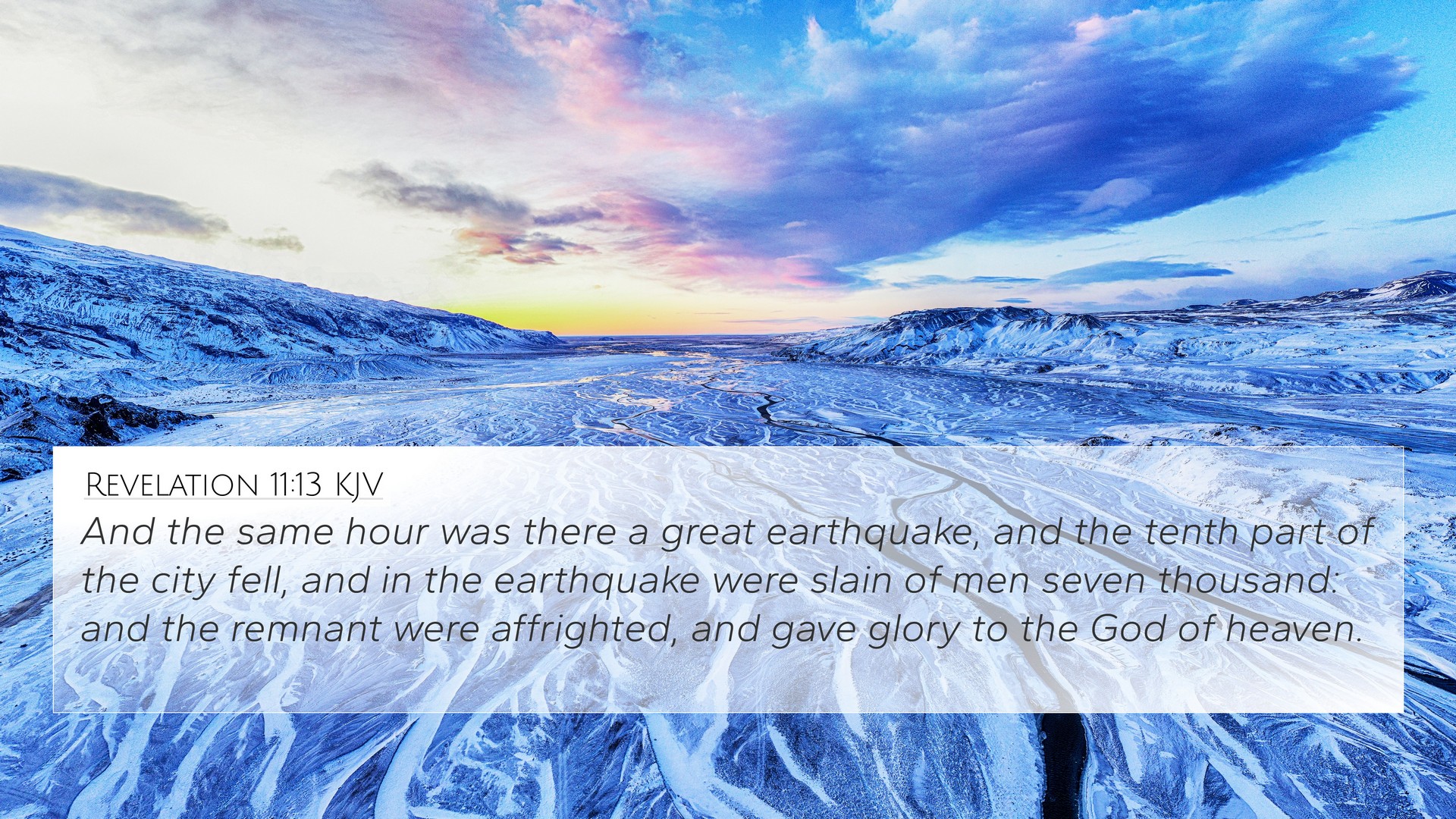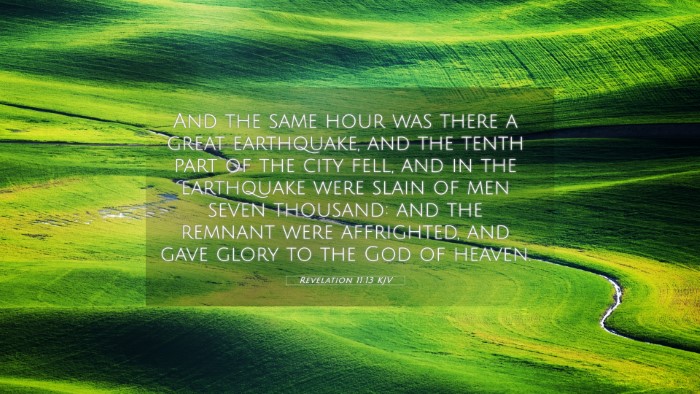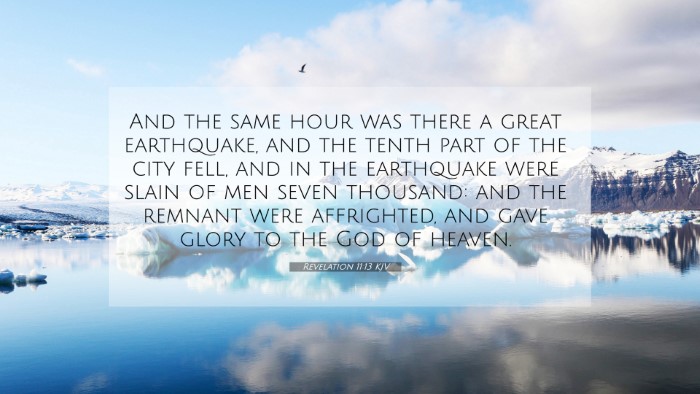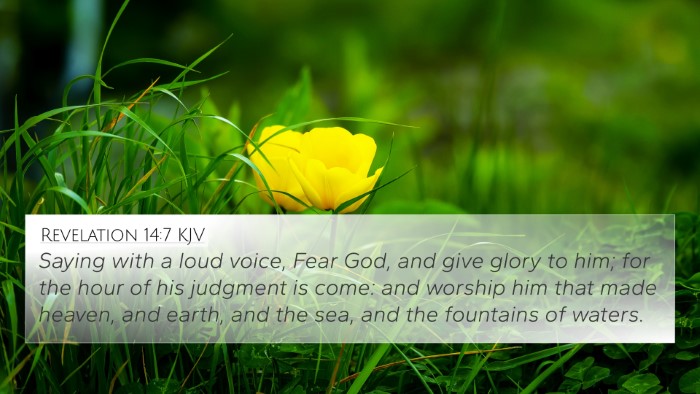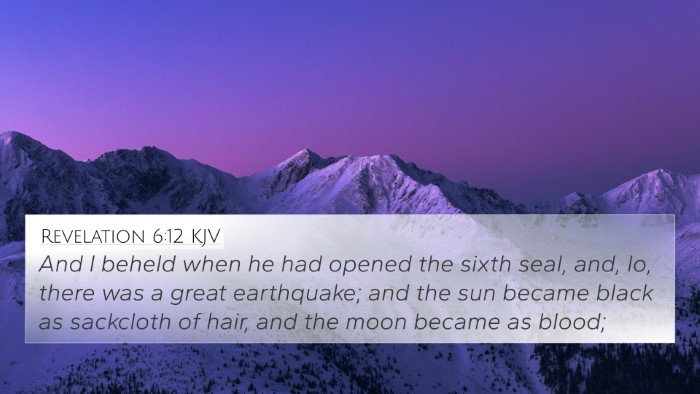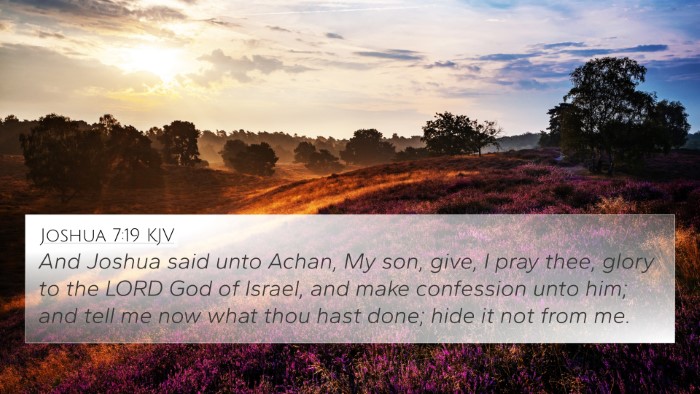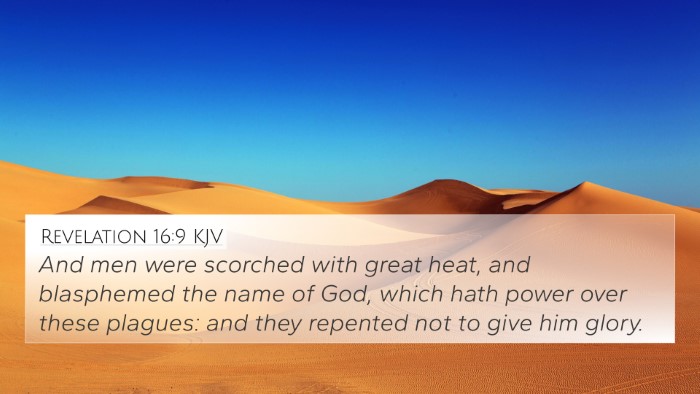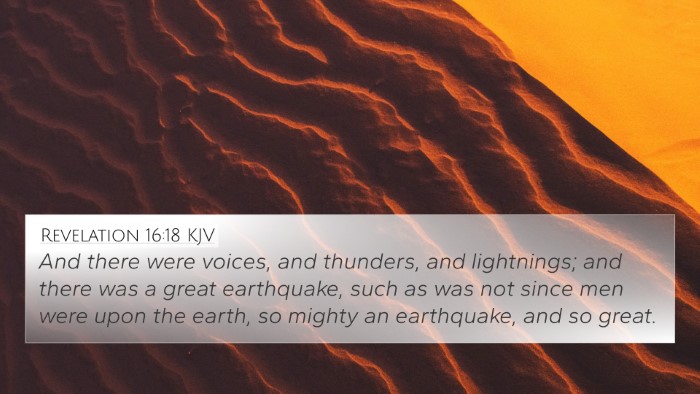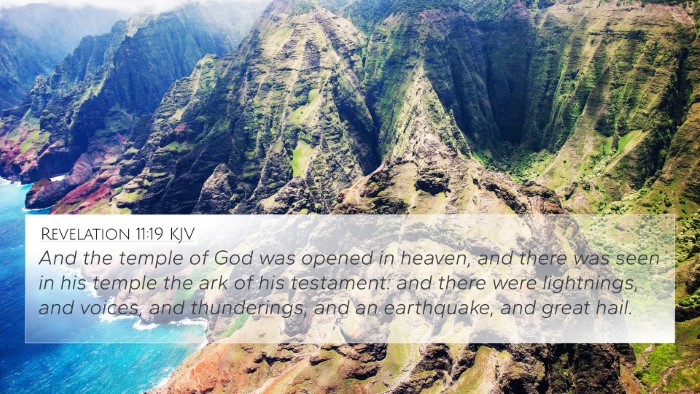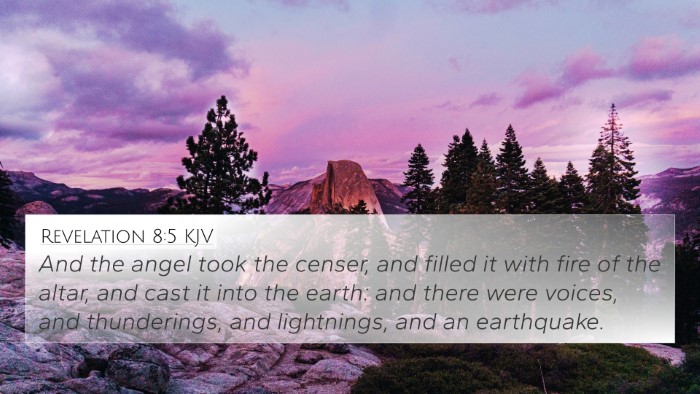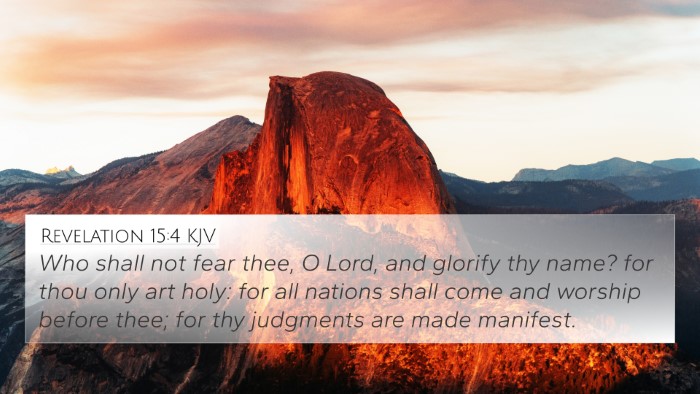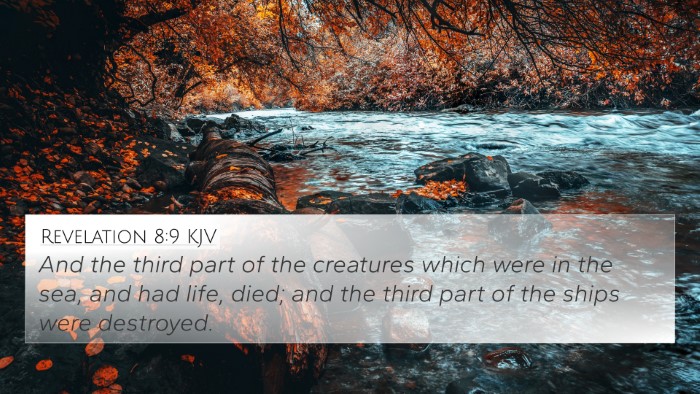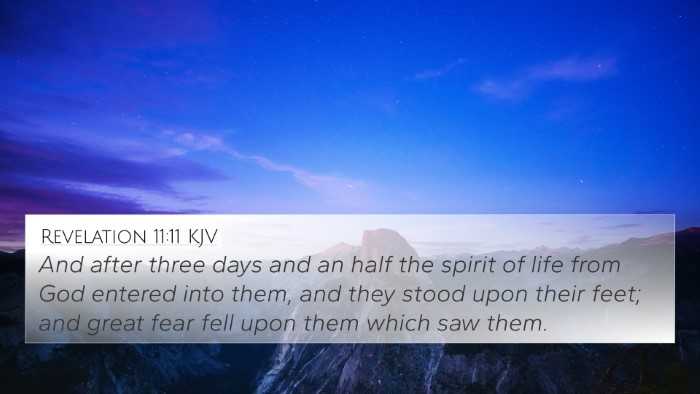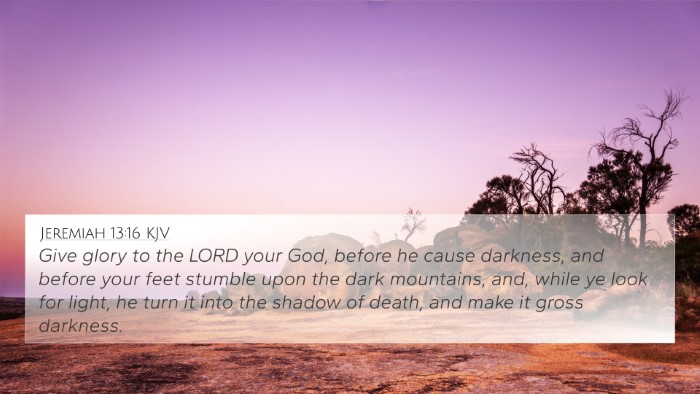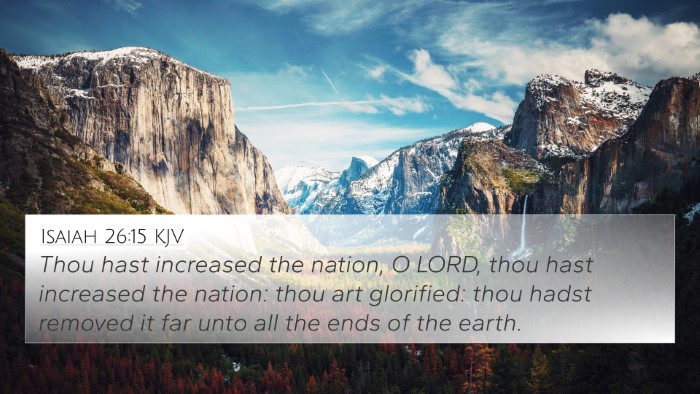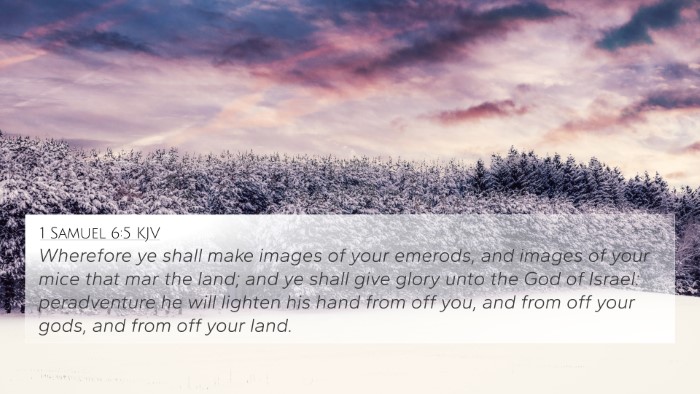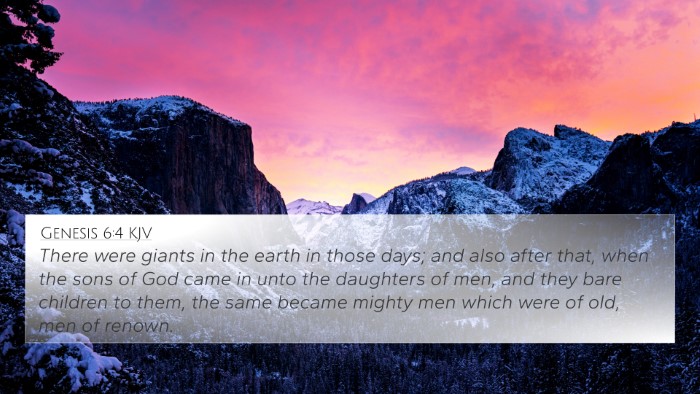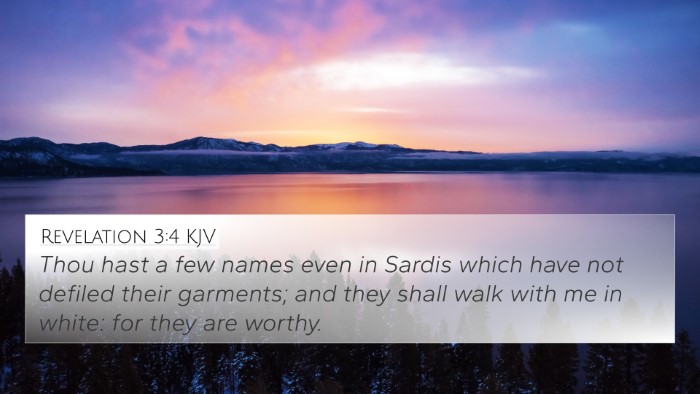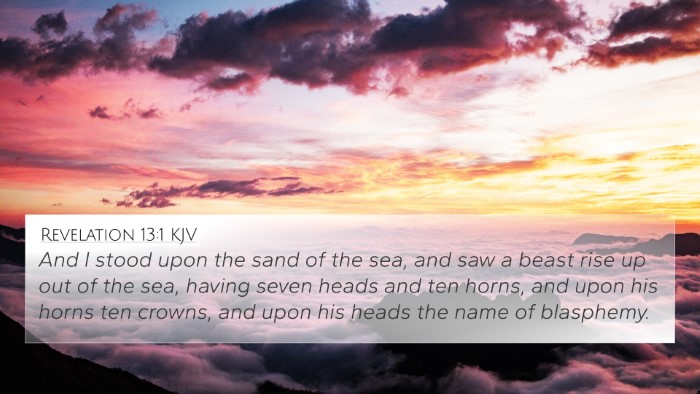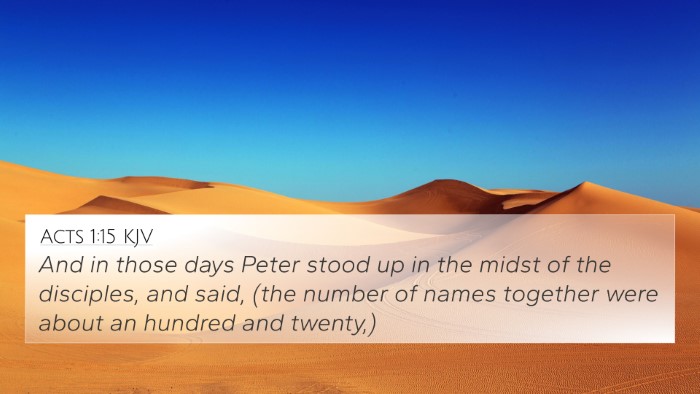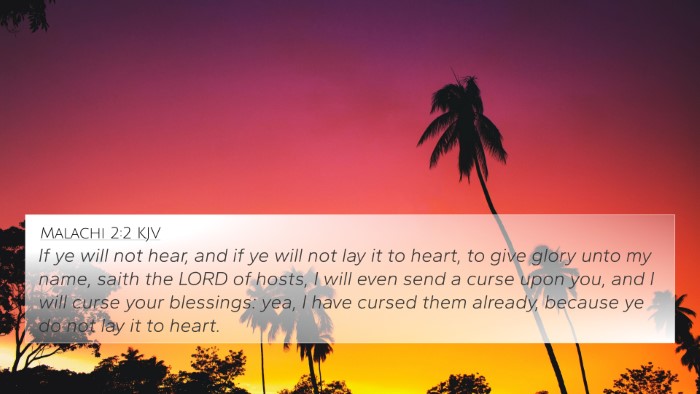Understanding Revelation 11:13
Revelation 11:13 reads: "At that hour there was a great earthquake, and a tenth of the city fell. Seven thousand people were killed in the earthquake, and the rest were terrified and gave glory to the God of heaven." This verse serves as a poignant culmination of the prophetic judgments presented in the book of Revelation, carrying deep symbolic meaning that warrants exploration.
Verse Interpretation
Commentaries from notable theologians such as Matthew Henry, Albert Barnes, and Adam Clarke provide significant insights into the implications and narratives intertwined within this verse.
Matthew Henry’s Insights
Matthew Henry highlights that this verse reflects God’s judgment upon the ungodly. The earthquake symbolizes divine retribution, acting as an instrument of God's displeasure towards sin and rebellion. Henry emphasizes that the devastation is not merely physical but represents the spiritual shaking that precedes God's ultimate kingdom.
Albert Barnes’ Commentary
Albert Barnes elucidates that the mention of the “great earthquake” signifies imminent danger and upheaval caused by God. This calamity results in a portion of the city collapsing, serving as a warning to the unrepentant. Barnes also notes the number of casualties, suggesting a call to repentance and recognition of God’s power and authority, as the survivors give glory to God.
Adam Clarke’s Perspective
Adam Clarke adds a historical context, indicating that such judgments are consistent with God’s dealings with mankind throughout history. His analysis suggests that the judgment reflected in this verse is towards cities and nations that exalt themselves against God. Clarke invites readers to see the impending judgment as a catalyst for the nations to ultimately acknowledge God, despite their previous rebellion.
Thematic Connections and Cross-References
This verse can be understood in the broader context of Biblical themes and connections. Here are some Bible cross-references that relate to Revelation 11:13:
- Matthew 24:7 - "For nation will rise against nation, and kingdom against kingdom, and there will be famines and earthquakes in various places." This verse connects with the theme of natural disasters as manifestations of divine judgment.
- Hebrews 12:26 - "At that time his voice shook the earth, but now he has promised, 'Yet once more I will shake not only the earth but also the heavens.'" This highlights the concept of God shaking the earth to bring forth His purposes.
- Revelation 16:18 - "And there were flashes of lightning, rumblings, peals of thunder, and a great earthquake such as there had never been since man was on the earth, so great was that earthquake." This shows a parallel of destruction that occurs during God’s judgments.
- Amos 1:1 - "The words of Amos, who was among the shepherds of Tekoa, which he saw concerning Israel two years before the earthquake, in the days of Uzziah king of Judah..." Illustrates a historical earthquake associated with prophetic warnings.
- Isaiah 2:19 - "And people shall enter the caves of the rocks and the holes of the ground, from before the terror of the Lord, and from the splendor of his majesty, when he rises to terrify the earth." This emphasizes the fear that accompanies God’s judgment.
- Revelation 6:12 - "When he opened the sixth seal, I looked, and behold, there was a great earthquake, and the sun became black as sackcloth, and the full moon became like blood." Another instance of destruction by divine command.
- Romans 1:18 - "For the wrath of God is revealed from heaven against all ungodliness and unrighteousness of men, who by their unrighteousness suppress the truth." This serves as a theological basis for God’s judgments as seen in Revelation.
Understanding Divine Judgment
The core meaning of Revelation 11:13 revolves around the theme of divine judgment and the response of people to God's power. This verse encapsulates several critical theological principles:
- Judgment and Mercy - While destruction is evident, those who survive the earthquake are moved to glorify God, indicating that judgment often serves a dual purpose of correction and revelation.
- The Sovereignty of God - Emphasizes that events, regardless of their nature, ultimately reflect the sovereignty of God over creation and history.
- Human Response to God’s Power - The reaction of the survivors showcases that even amid disaster, there is potential for recognition of God's majesty and authority.
- Hope Amidst Judgment - This verse serves as a reminder that judgment is not the end, but a means to invite humanity back to God.
Cross-Referencing Tools and Methods
Utilizing bible concordance and bible cross-reference guides can enhance the study of Revelation 11:13. Here are some suggestions:
- Tools for Bible cross-referencing:
- Bible commentaries that offer insights on thematic connections.
- Digital tools and applications that provide cross-reference features.
- Cross-reference Bible study methods:
- Identifying key thematic words and tracing their occurrences throughout the scripture.
- Mapping out theological concepts through a comparative study of parallel verses.
Conclusion
Revelation 11:13 provides profound insights into divine judgment and humanity's response to God's sovereignty. By employing tools such as bible references and cross-referencing methods, one can grasp the connections between this verse and other biblical passages, illuminating the overarching narrative of scripture. Understanding these themes not only deepens one’s faith but also enhances one's ability to interpret and connect different scripture teachings effectively.
In summary, Revelation 11:13 is not just a historical account but a timeless reminder of the power of God, the reality of judgment, and the opportunity for repentance and glory in acknowledgement of His sovereignty.
